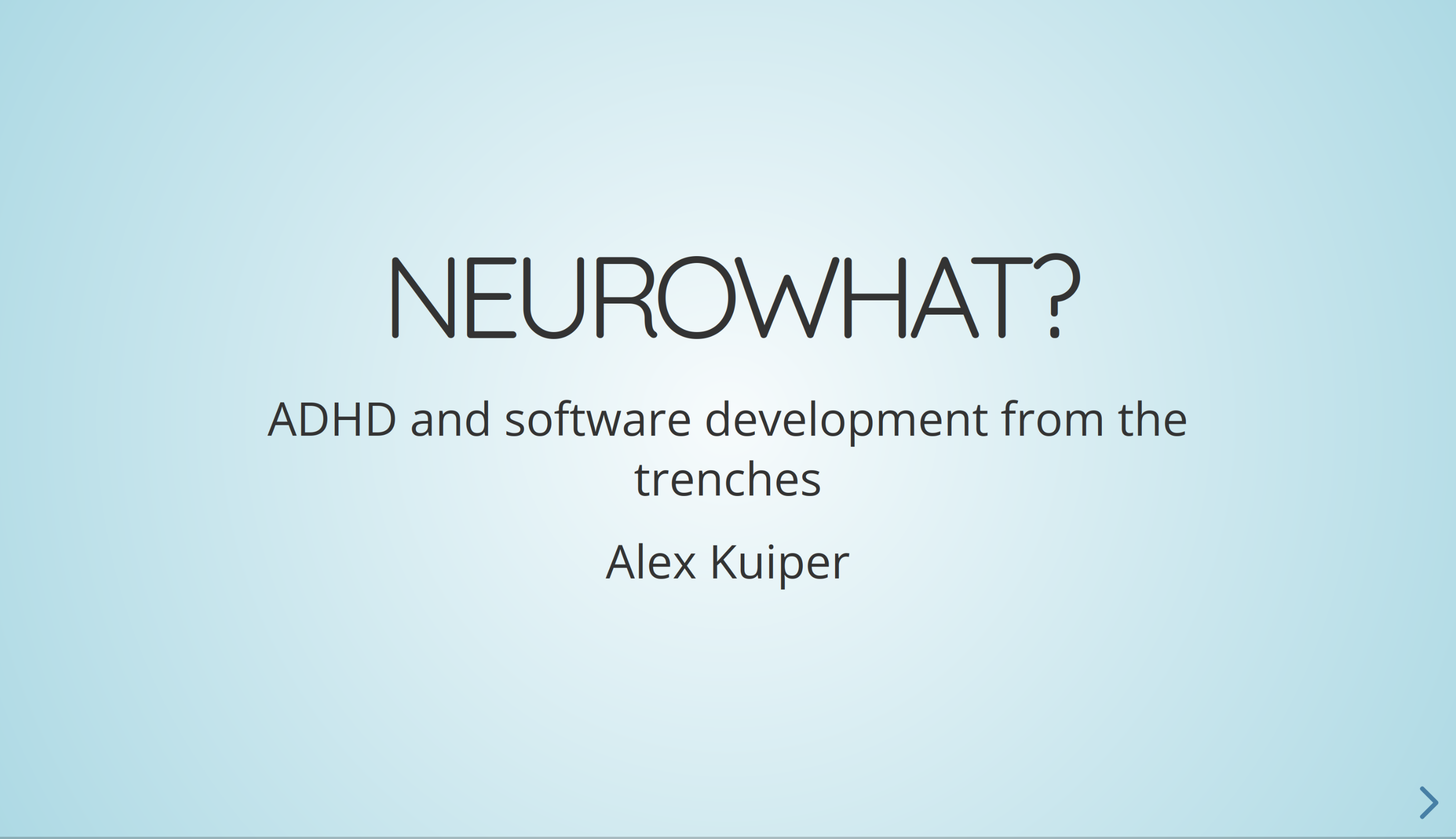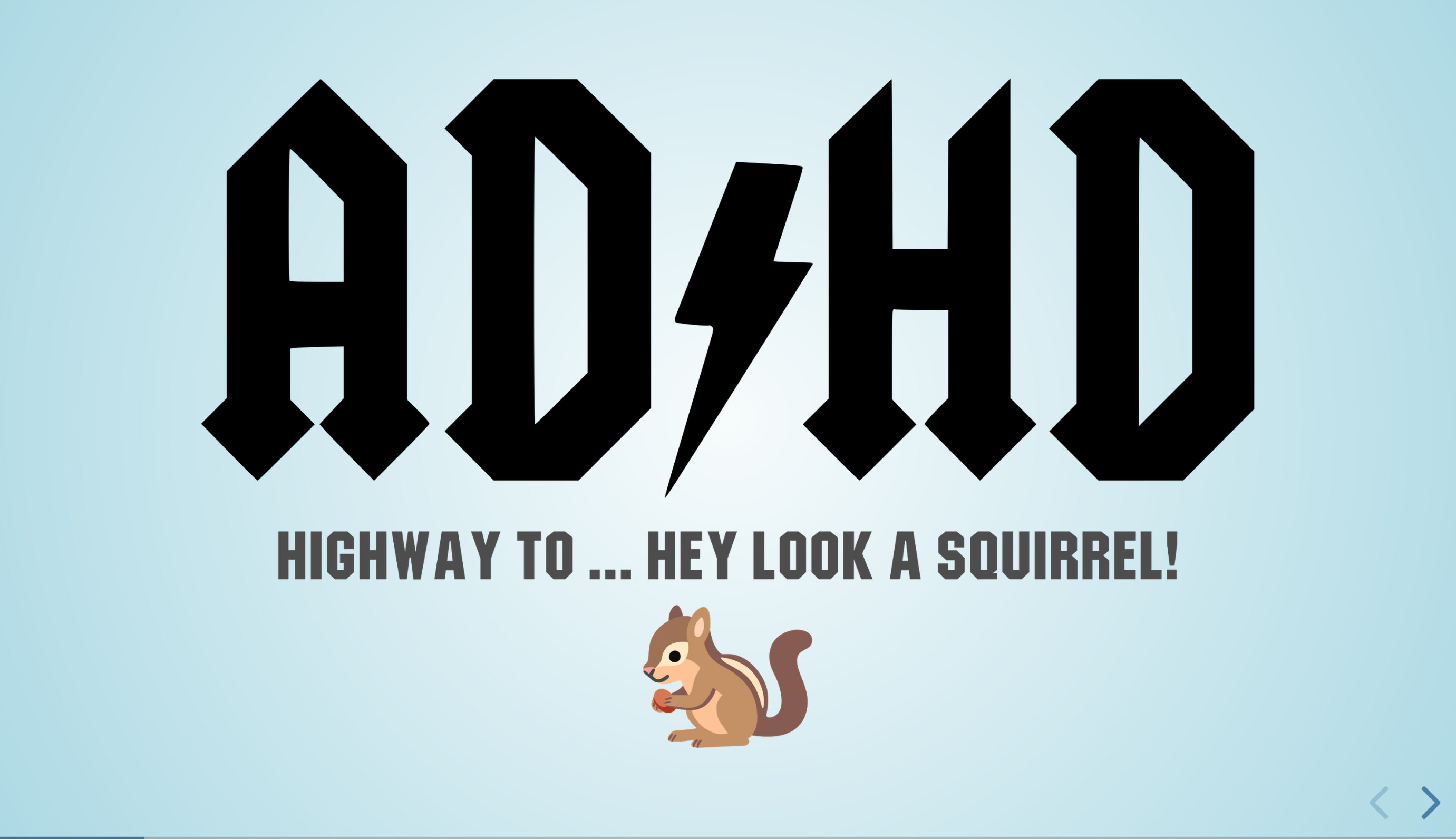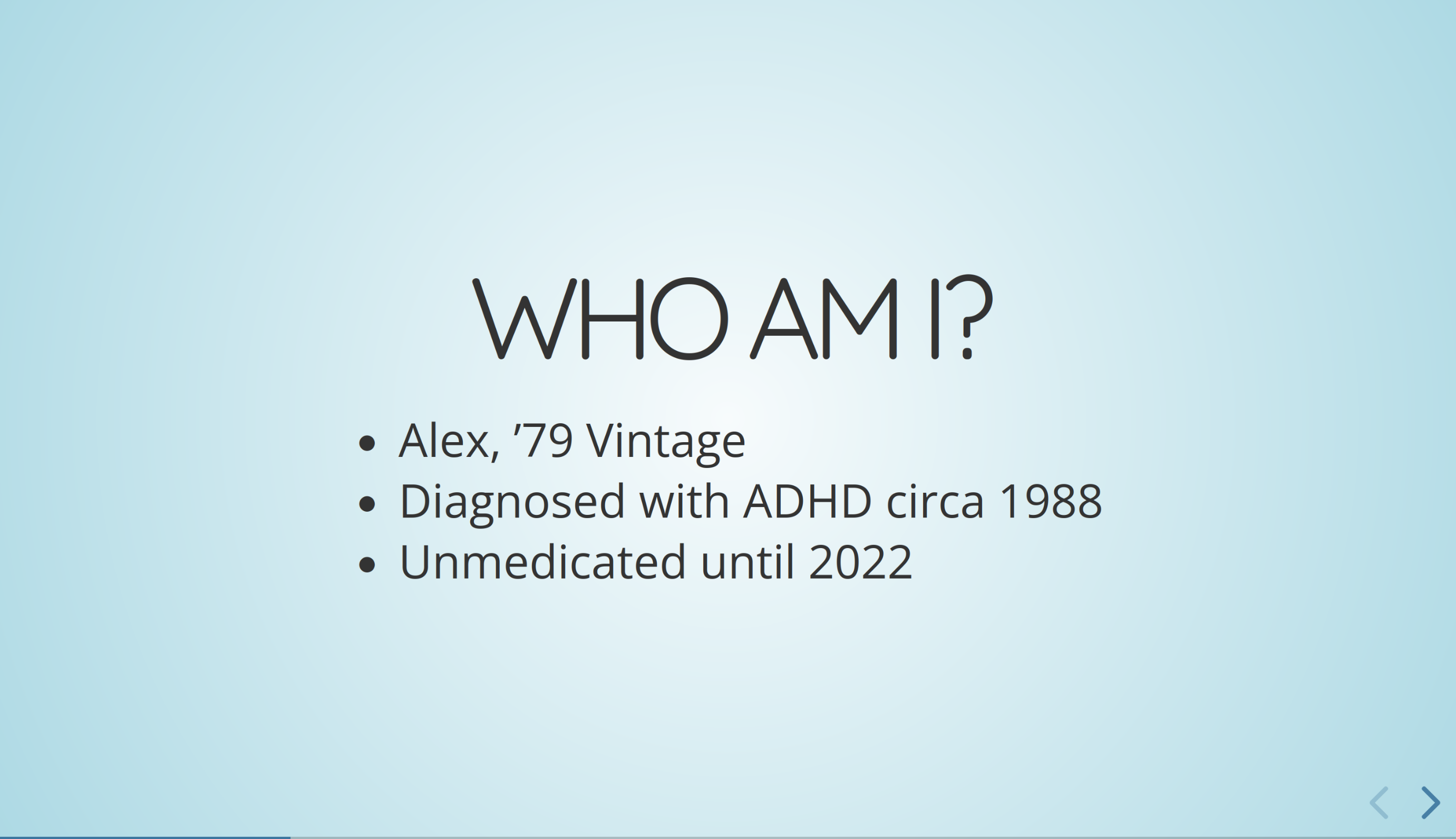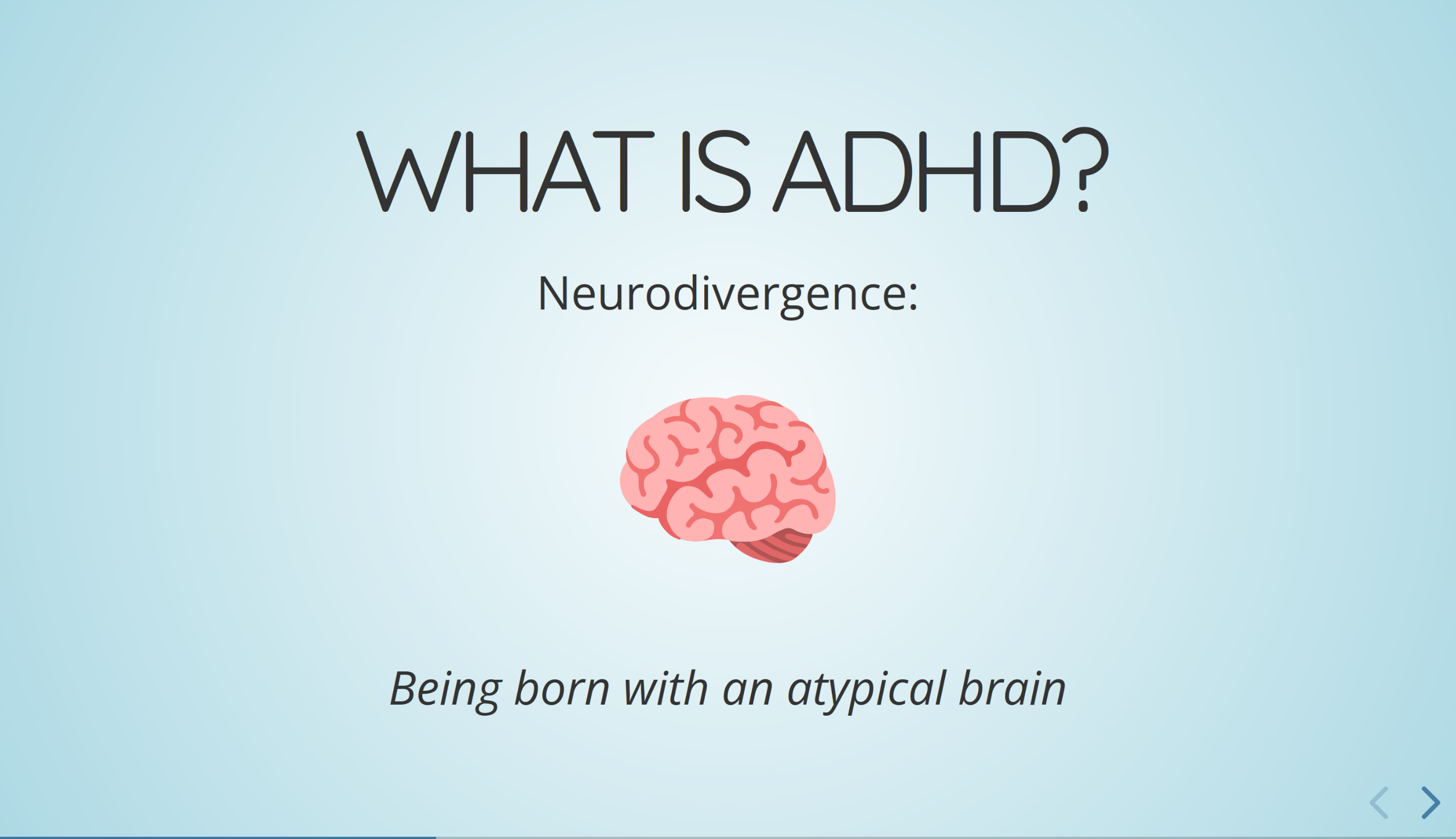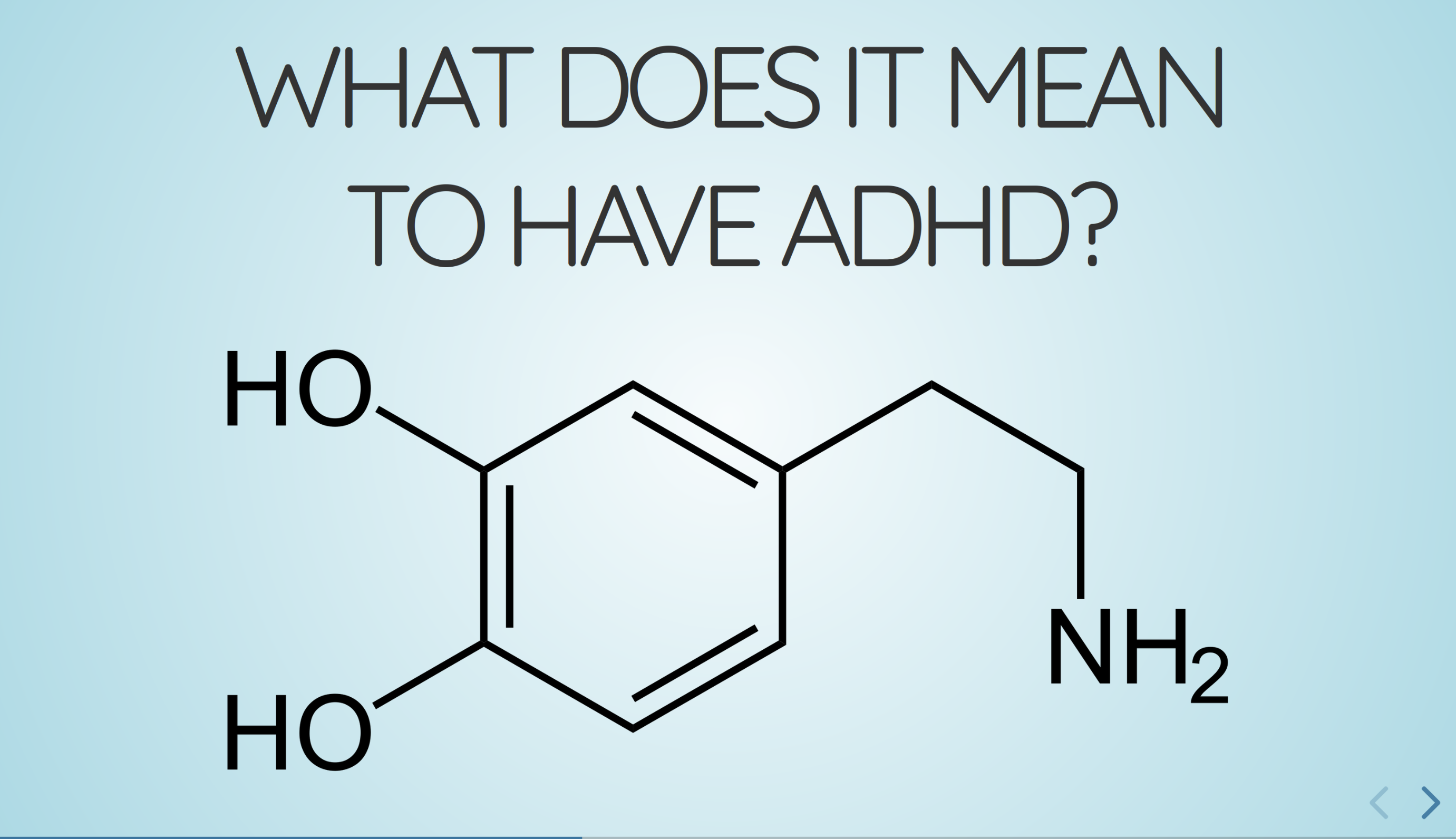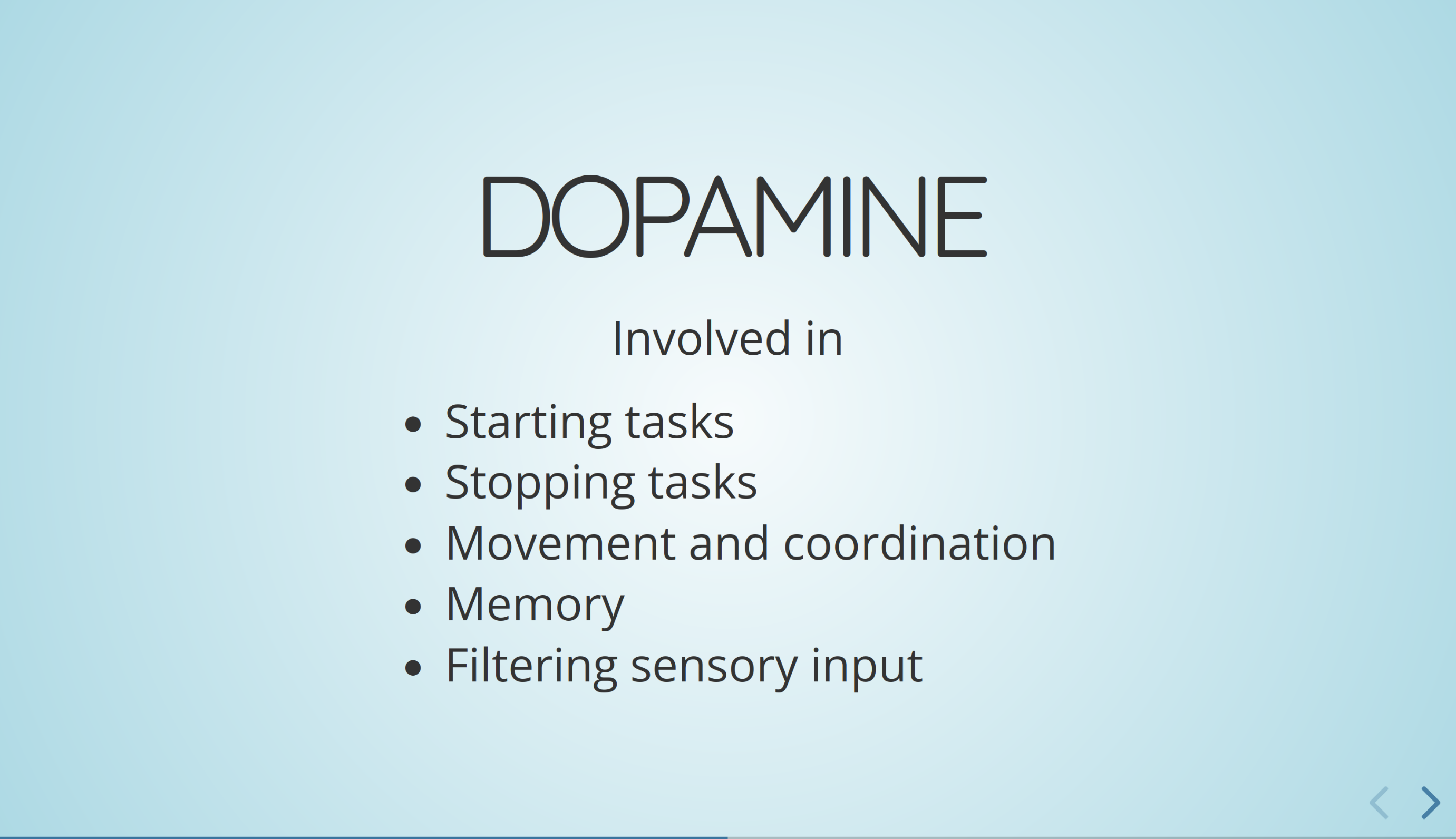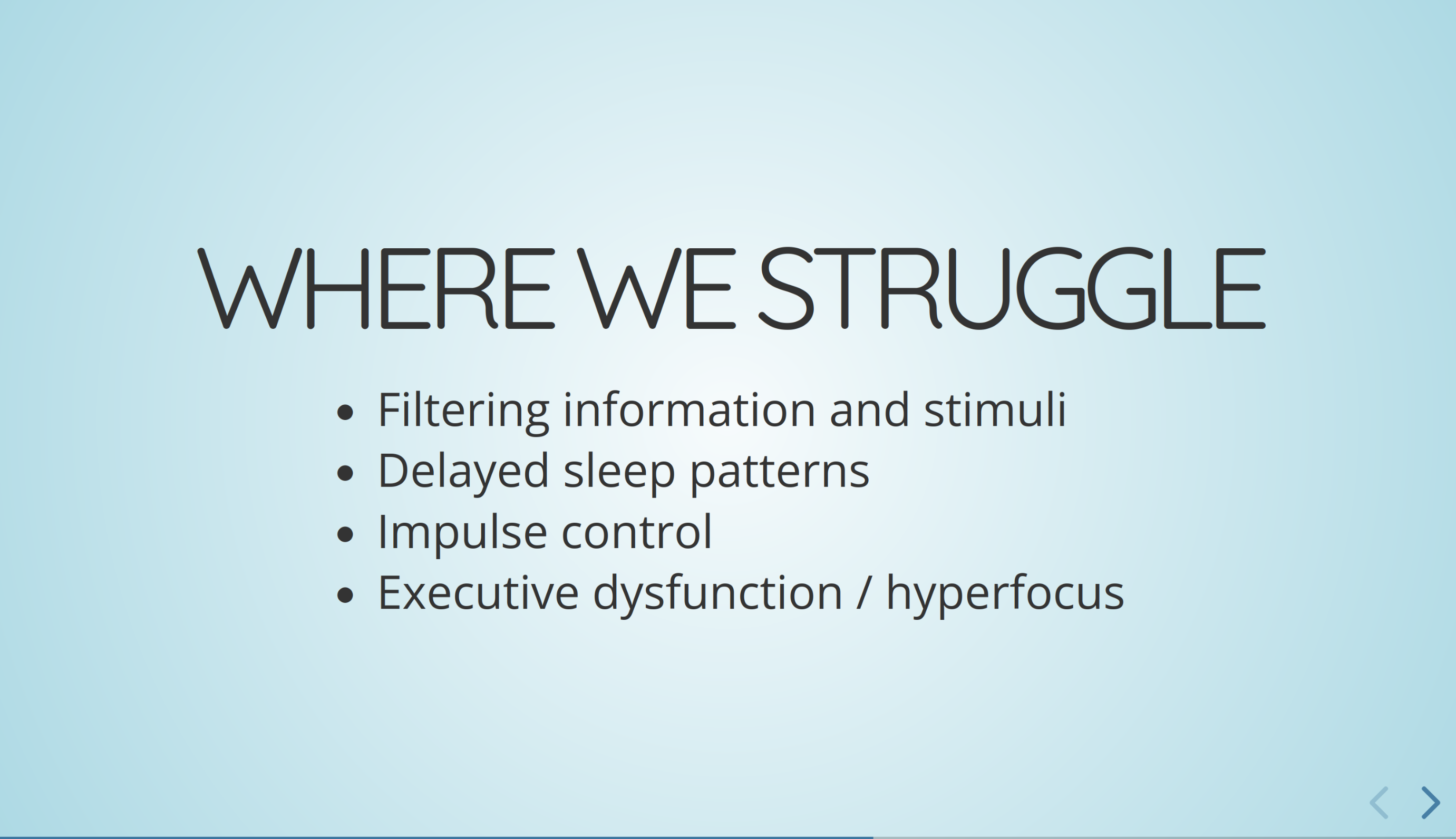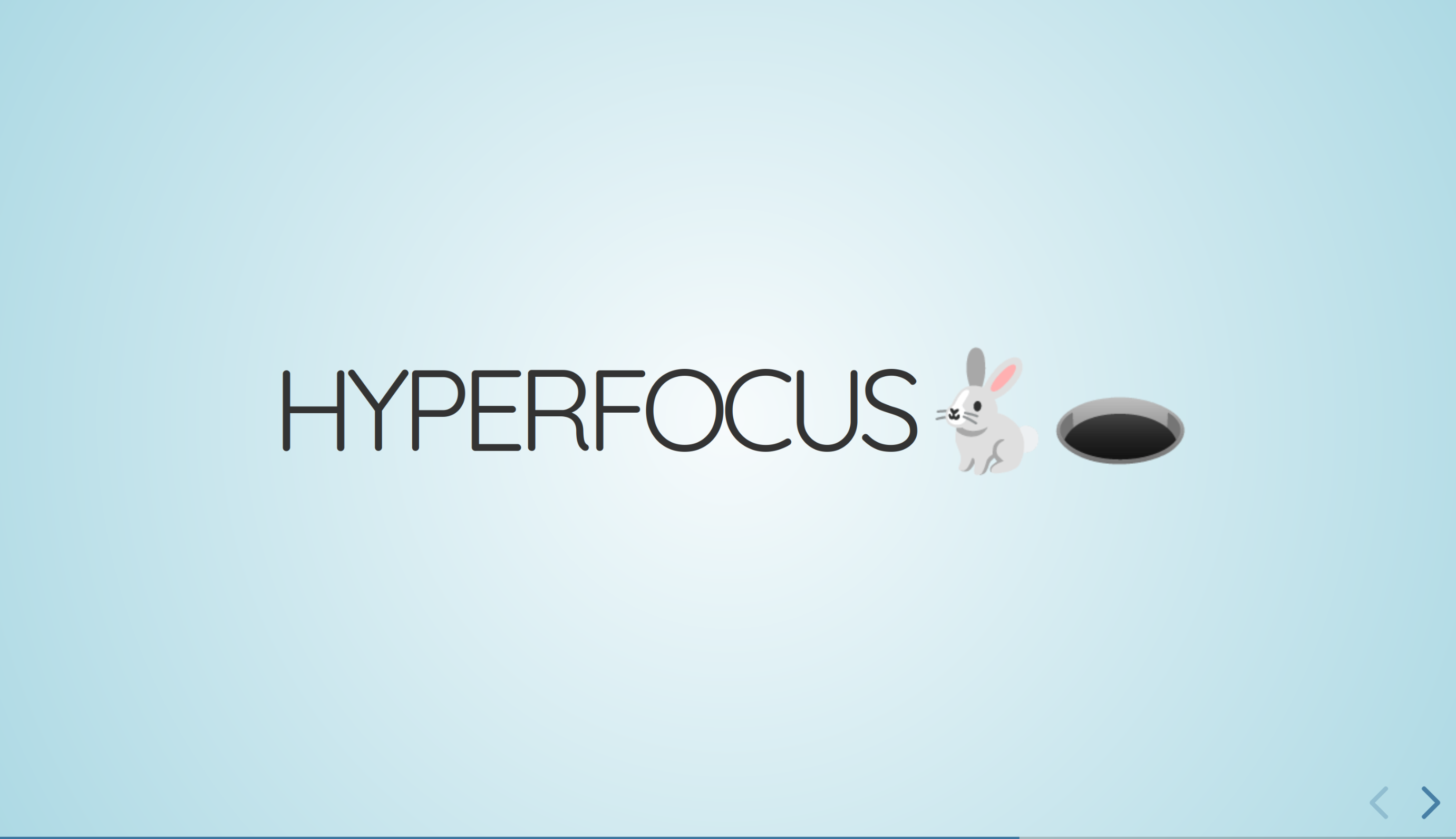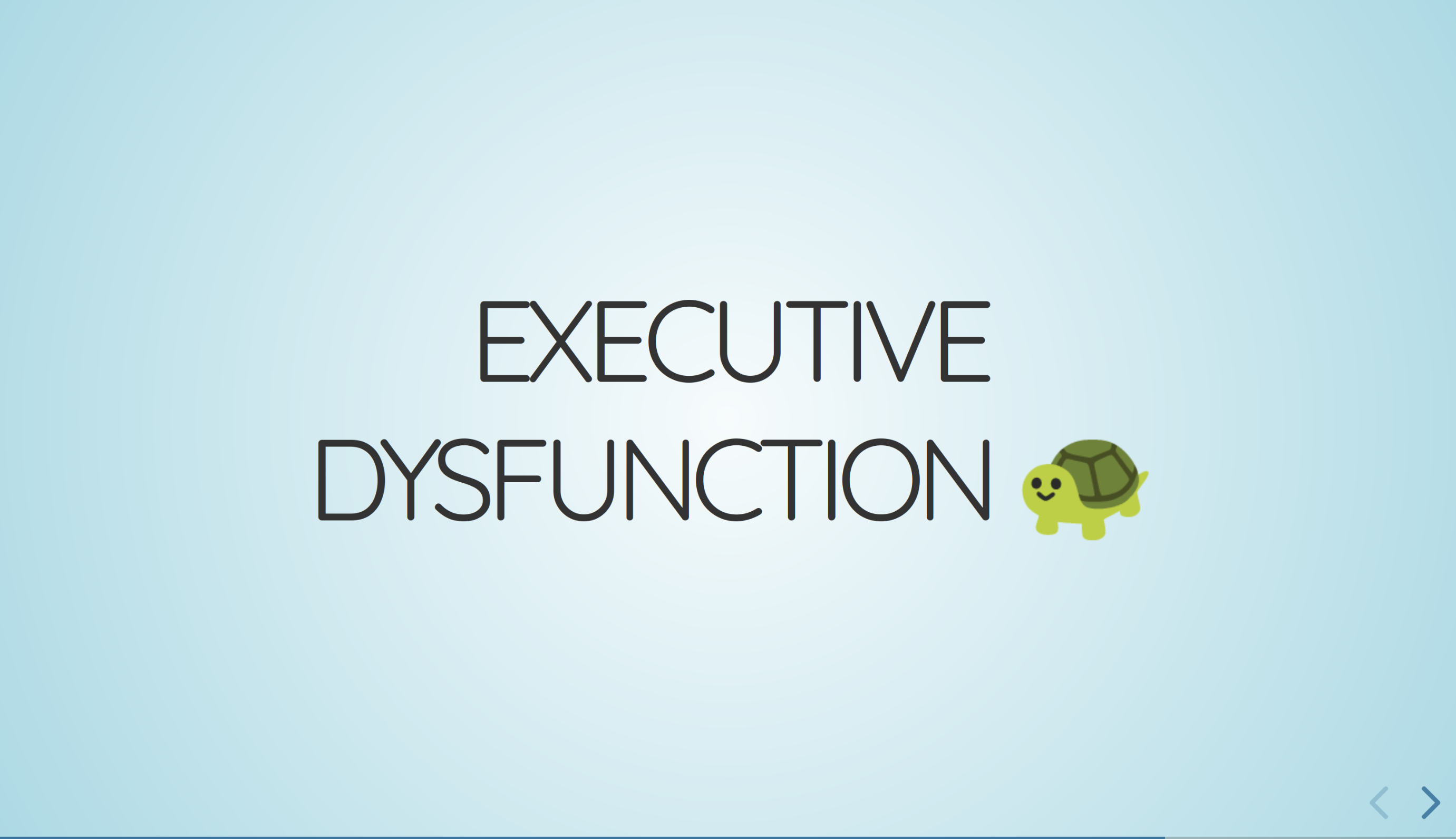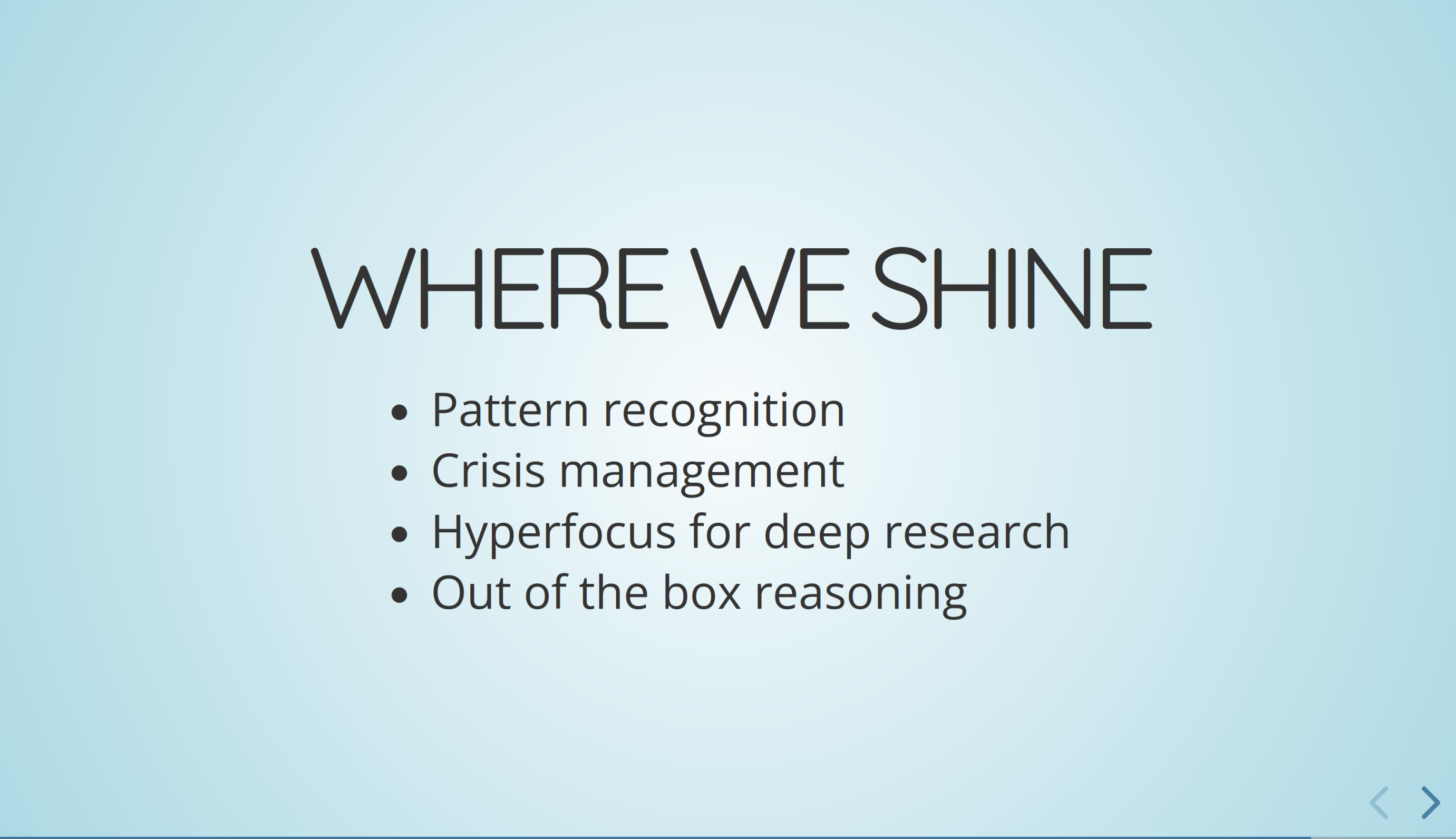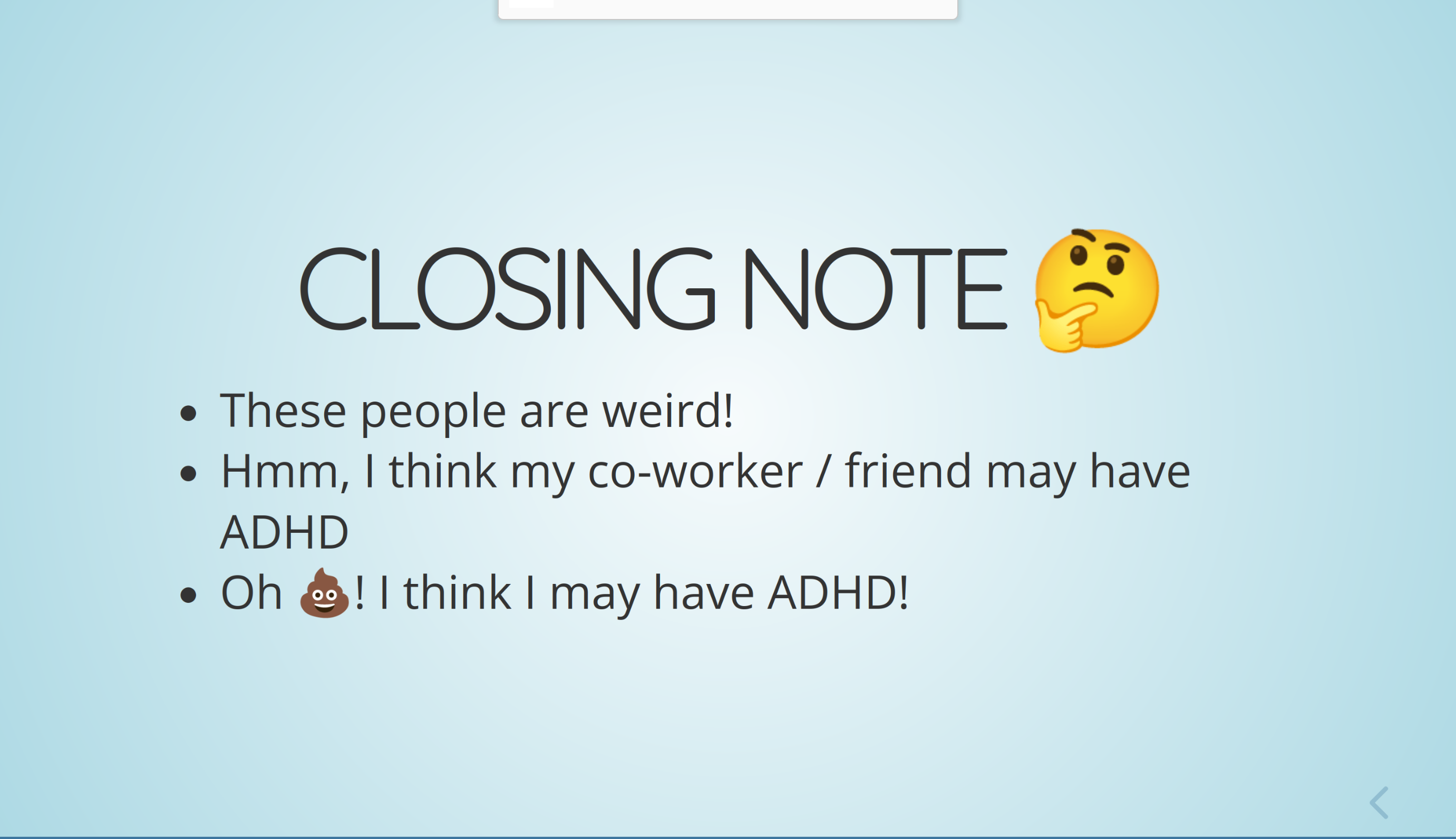Neurowhat? ADHD and software development from the trenches.
These are the slides and script of the lightning talk I gave at Joy of Coding 2025.
What did I mean to do here on stage again?
Oh, right! I’m here to talk about ADHD, best known for their smash hit “Highway to … hey look, a squirrel!”
OK, I promise this will be the only Dad joke in this talk!
Who am I?
- Alex, ‘79 Vintage
- Diagnosed with ADHD circa 1988
- Unmedicated until 2022
As you can see here, I’m Alex. You might have seen me around this conference before. I’m a ‘79 vintage, which makes me 45 years old at the moment. I originally got diagnosed with ADHD in the late 80’s, was medicated for a few weeks and then spent several decades unmedicated until I finally got back on medication in 2022.
This means that I spent most of my adult life unmedicated and struggling with my ADHD. Since there is a big change that you have at least one co-worker who also has ADHD, I wanted to share my experiences on what it’s like.
What is ADHD?
Neurodivergence: Being born with an atypical brain
What is ADHD? That’s a big question, but today I’ll settle on this: it’s a form of neurodivergence, which means you’re born with a brain that works differently from most people’s brains.
We call people with a more common brain structure “neurotypical”.
What does it mean to have ADHD?
You can’t really talk about ADHD without talking about dopamine. You may have heard of dopamine before, it’s often called the “reward chemical”, and that is one of its functions. It’s involved in a lot more though:
Dopamine
It is used to
- Start tasks
- Stop tasks
- It helps you coordinate your movements
- It’s involved in memory
- It helps the brain filter information
If you have ADHD, your dopamine systems work differently. Your brain creates dopamine, just like everybody else, but it breaks it down way faster.
This means that if you have ADHD, you’re often short on dopamine. As this list shows, it’s important stuff, so if you’re always low, you’re going to struggle in several ways.
Where we struggle
Having a brain which breaks down dopamine too fast leads to several effects that can cause people with ADHD to struggle in daily life. Some examples are:
- Filtering information and stimuli - Like sounds, and smells. This can make it really hard to focus in a noisy environment.
- Delayed sleep patterns - many of us are natural night owls, which is hard if you’re expected to get up early.
- Impulse control - where you don’t always look before you leap, which can get you in trouble.
- Executive dysfunction / hyperfocus, which is the one I’d like to explore further.
Hyperfocus🐇🕳️
Hyperfocus, also known as “down the rabbit hole”, is when a task grabs you, and you’re unable to stop.
Dopamine is about reward, and since my brain breaks down dopamine too fast, it will latch on to things that feel rewarding. If something interests me, it can grab me to the point where it becomes near impossible to stop.
I’ll keep digging deeper and deeper into it, to the point where I’m exhausted and realise I haven’t eaten or drunk anything in far too long.
My mind will keep coming back to it, it will just bite onto it until I get it fixed, until I get that pay-off, until that final test passes. This can lead to me working way too long and burning myself out. You get into this loop where you’re too tired to get it right, and you keep banging your head against the wall and it takes every ounce of willpower just to let go. You know you have to let go. You know you’re not doing the right thing anymore, you know you’re not being productive. Just knowing those things though, it doesn’t enable you to just stop.
Executive dysfunction 🐢
Executive dysfunction is the opposite side of that coin. When something isn’t interesting, it can be almost impossible to start.
The best image I’ve heard it described as is, where you’re in your car and you’re stuck in the mud. You can push down the throttle, the engine will rev, but your wheels spin in place and you’re not getting anywhere. All you’re doing is burning a ton of energy, without making any headway. That is what it feels like to try and start a task if you’re low on dopamine.
I realise this is going to sound alien to some people, or worse, it sounds like being unmotivated. You often hear things like: “But you can concentrate as long as you enjoy it! You just don’t feel like doing the work.”
The thing is: it doesn’t work like that. People with ADHD are not unmotivated. They are not unwilling. They are often doing a ton of work, and not getting a lot of result from it.
Yes, one one subject we can hyperfocus deeply and on another we struggle.
Unfortunately, that’s not a switch we can flick in our brains.
Where we shine
So this was one of the places where people with ADHD struggle. Let me also quickly go through some places where we tend to shine:
- Pattern recognition - A lot of us are really good at finding patterns in the noise. You can imagine that’s a useful skill in software engineering. It’s less fun if you’re watching a crime show with us.
- Crisis management - Adrenaline works similar to medication. You’ll often find people with ADHD become extremely focused in a crisis.
- Hyperfocus for deep research - The hyperfocus I just described means we often have really deep knowledge of some subjects.
- Out of the box reasoning - We think differently, which means we’ll often come up with solutions that other people may have missed.
Closing note 🤔
At this point, you’re probably thinking one of 3 things:
- These people are weird, and especially this guy. That’s OK.
- Or, you’re thinking “Hmm, I think my co-worker / friend may have ADHD…”
- Or finally, “Oh shit! I think I may have ADHD!”
For the last case: come find me later and I’ll give you some resources.
For the second group: this talk was for you. I hope you now understand your friend or co-worker a little better. Understanding what ADHD is and what is does can make working together with someone who has it a lot less frustrating, and turn it into a partnership where you benefit from each other’s strengths and compensate for each other’s weaknesses.
Us ADHD folks make great friends and co-workers… just you know, keep those damn squirrels away from us!
